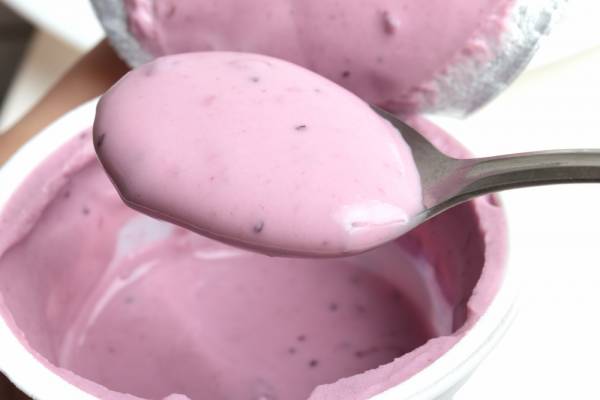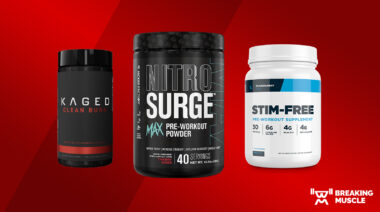Last week we learned about the four essential daily supplements: fish oil, vitamin D, magnesium, and Alpha lipoic acid. This week we delve into the next level – eight more daily supplements you may decide have benefit. Not all of these will be appropriate, but you may find based on your current health and fitness goals, that some of these should be added into your personal daily regimen.
Last week we learned about the four essential daily supplements: fish oil, vitamin D, magnesium, and Alpha lipoic acid. This week we delve into the next level – eight more daily supplements you may decide have benefit. Not all of these will be appropriate, but you may find based on your current health and fitness goals, that some of these should be added into your personal daily regimen.
1. Vitamin E
Proclaimed by doctors Eades and Eades as an essential supplement, Dr. Mary Dan Eades explains in her book that Vitamin E, a powerful antioxidant, helps us with everything from slowing down the aging process, to the prevention and treatment of cancer, to metabolizing arterial fats and lowering the risk of coronary disease.1 Plastic surgeons are known to recommend Vitamin E for healing scars and it can also protect our skin from the damaging effects of the suns rays.
Recommended dosage: 20-30 IU
2. Coenzyme Q10 (CoQ10)
Another powerful antioxidant, CoQ10 is a naturally occurring enzyme in our bodies. Our natural levels, however, drop as we age. It is believed CoQ10 plays a role in maintaining a healthy heart and circulatory system. It has been approved for use in Japan for the treatment of heart failure since 1974.2 Various studies have also said CoQ10 is beneficial in the treatment of high blood pressure, diabetes, heart damage caused by chemotherapy, recovery from heart surgery, and periodontal disease.3
Recommended dosage: 30-200mg
3. N-acetyl-L carnitine (NAC)
One of the building blocks for proteins, NAC is an amino acid naturally produced in our bodies and aids in the body’s production of energy. NAC is used to improve memory, reduce nerve pain caused by diabetes, treat symptoms caused by declining testosterone levels in men, and treat Alzheimer’s.4 Robb Wolf recommends in his book that NAC be taken in conjunction with Alpha lipoic acid and that the combination taken in the morning can provide a big mental energy boost.
Recommended dosage: 600-1200mg
4. Conjugated linoleic acid
CLA has been shown to reduce body fat and build lean muscle mass.5 It has also been shown to aid in the prevention of cancer and in reducing high cholesterol.6 Dietary sources of CLA are beef and dairy products. Grass fed meats are much higher in CLA, however, so you may want to supplement if you are not regularly eating grass fed meats and raw dairy products. Be mindful that some studies have shown CLA supplementation in high doses can lead to insulin resistance.
Recommended dosage: 3-5g

5. Zinc
According to the Office of Dietary Supplements, “Zinc is involved in numerous aspects of cellular metabolism. It is required for the catalytic activity of approximately 100 enzymes and it plays a role in immune function, protein synthesis, wound healing, DNA synthesis, and cell division. Zinc also supports normal growth and development during pregnancy, childhood, and adolescence and is required for proper sense of taste and smell. A daily intake of zinc is required to maintain a steady state because the body has no specialized zinc storage system.”7
Recommended dosage: 8-13mg
6. Digestive Enzymes
According to Robb Wolf, regular supplementation with digestive enzymes (such as proteases, lipases, and amylases) is necessary for people with gastro-intestinal disorders, auto-immune conditions, or systemic inflammation. These enzymes help you break down proteins and fats. For people new to the paleo style of eating, digestive enzymes may help them transition.
Recommended dosage: depends on enzyme taken and body response

7. Probiotics
Probiotics are what are commonly referred to as “good bacteria.” They also come in the form of fungi, too. They aid in the normal function of our digestive and immune systems and line the inside of our intestines. Probiotics may also be useful for the treatment of diarrhea and Crohn’s disease.8 Natural sources of probiotics include yogurt, miso, kimchi, and kefir. Supplementing with probiotics is highly recommended to replenish the healthy flora in your digestive system if you have recently been prescribed antibiotics.
Recommended dosage: 1-2 servings
8. Creatine
Long associated with body-builders, creatine has wrongly garnered a bad reputation. Creatine is an amino acid stored in our muscles. During short, but high intensity exercise it is converted into adenosine triphosphate – commonly known as ATP, the source of energy in our body. While creatine has been shown to help treatment of diseases like heart disease and chronic obstructor pulmonary disease, for most of us it is useful for helping us being explosive during Olympic lifting and sprinting. It has not been conclusively shown to be helpful in endurance sports.9
Recommended dosage: 2-5g
If you haven’t read it yet, be sure to read Demystifying Supplements: The 4 Essential Daily Supplements You Need.
Be aware the FDA has not established recommended dosages for all these supplements and nutrition experts may disagree with existing FDA recommendations, anyway. So in some cases the recommended dosages given are large ranges. In addition, if you have any medical conditions, please consult with your doctor before prescribing yourself any supplements.






